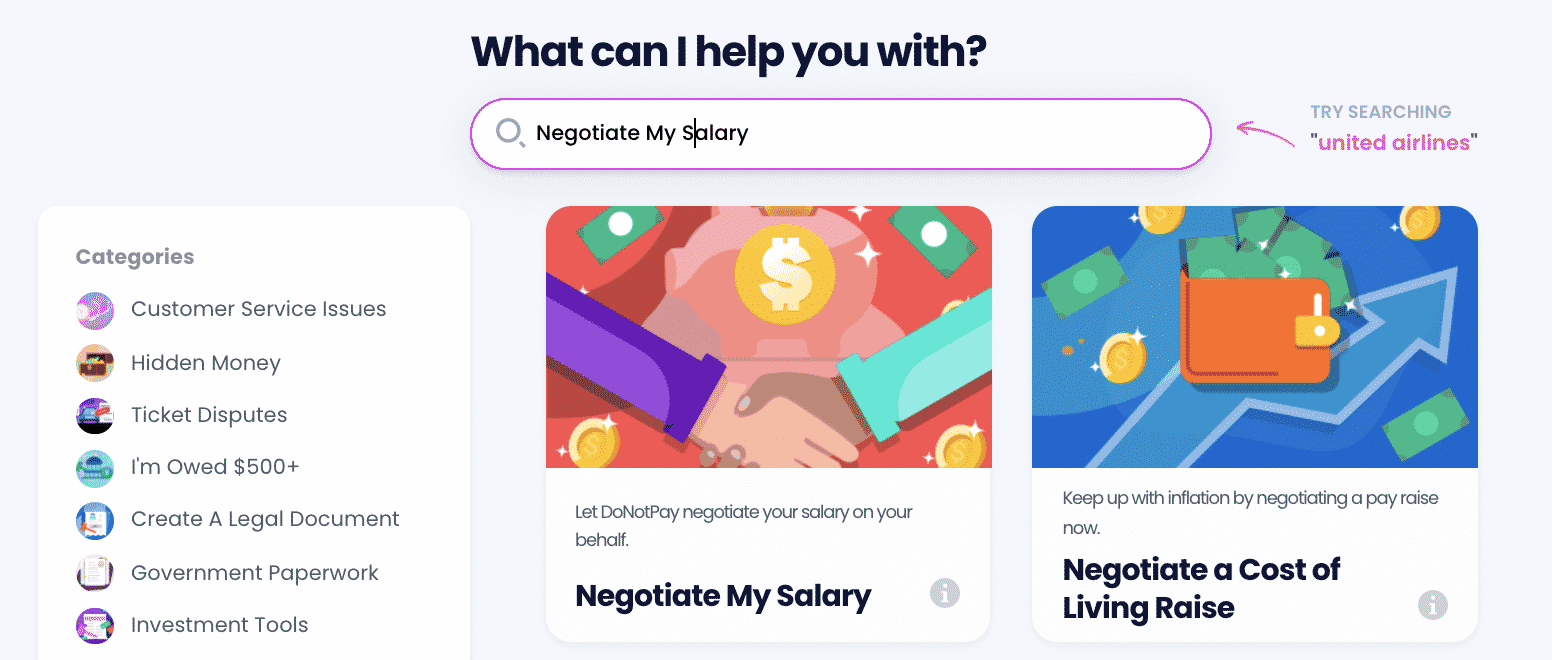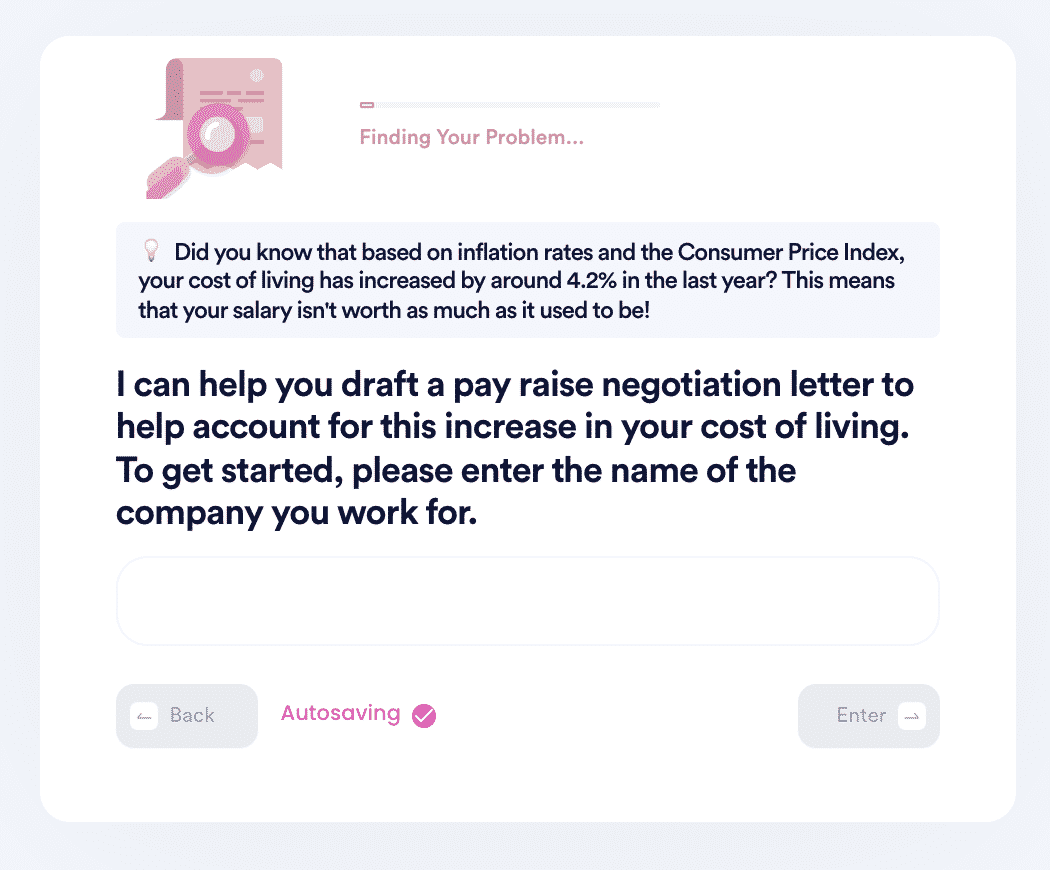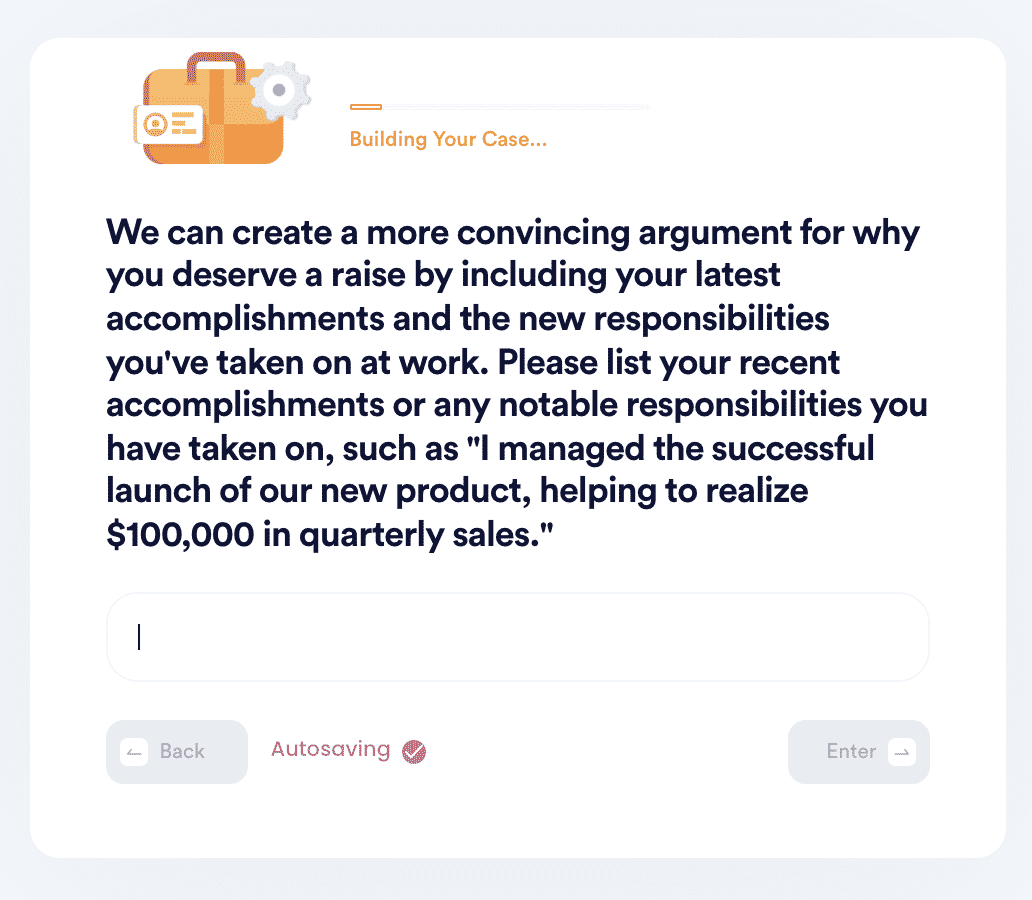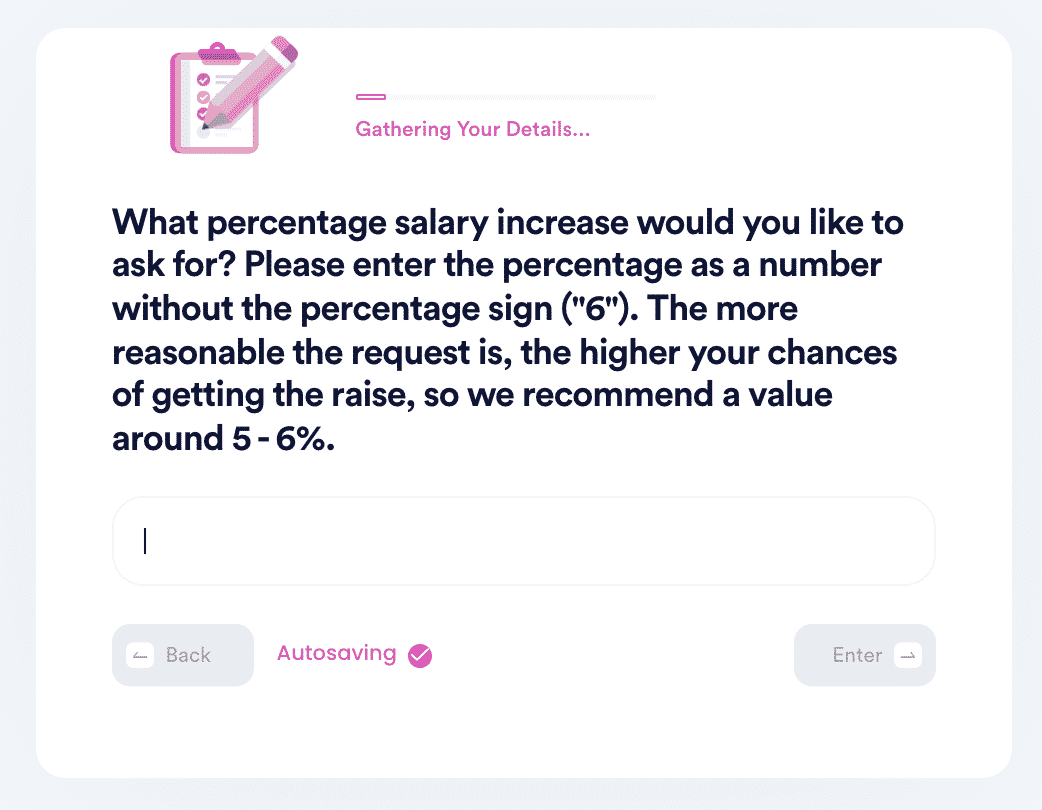How to Successfully Negotiate Your Salary for a Federal Job Offer
Did you receive a federal job offer? Having a federal job often comes with a variety of benefits, such as health insurance, pay and leave flexibilities, retirement benefits, and more. But if your offered salary is a little less than what you expected or what you believe you qualify for, you may be interested in negotiating it.
Salary negotiations happen all of the time, whether it be for first-time negotiations or a pay negotiation after working with the company for so long. For some employees though, negotiating a salary can feel a bit intimidating, often resulting in them choosing not to negotiate at all.
Here at DoNotPay, we believe that everyone should be paid what they're worth. If you received a federal job offer and would like to negotiate your starting pay, continue reading to learn how you can negotiate your salary with ease and why DoNotPay is the best option when it comes to .
How to Negotiate Your Federal Salary
Are you negotiating your salary for the first time? Or, maybe you're uncertain of how to negotiate your pay for a first-time job offer.
Negotiating your federal salary is very similar to negotiating any other job’s salary. Here are a few ways you can negotiate your federal salary:
Become Familiar with Industry Salary Trends | Before attempting to negotiate your salary, it's important to become familiar with the current industry salary trends. You need to get a realistic view of the average employee salary for someone in your field in the area that you're working in and use that information as grounds for a raise. The more you understand salary trends, the more leverage you will have to negotiate your salary for your new job offer.
For federal jobs, do research on the government pay scales for your role. |
Explain Your Reasoning for the Raise | While it might sound ideal to just request a raise, be prepared to explain your reasoning behind asking for one. Even when research, such as salary trends support a raise, it's essential that you build yourself a solid case to increase your chances of actually successfully negotiating. Some things you will want to think about when building your case, include:
|
Know the Exact Number | When negotiating your salary job offer, it's essential that you know the exact number that you're aiming for. In fact, research has shown that individuals who provide a precise number in their initial negotiation request are more likely to get at or close to what they were asking for. |
How Often Should You Get a Raise?
How often an employee should receive a raise will depend on a variety of factors. In general, you shouldn't request a raise more than once a year. However, there are certain scenarios when requesting a raise may be appropriate. Here are a few reasons to consider:
- You've excelled at a performance review
- You have a specialized skill benefiting the government
- You will be taking on more job responsibilities
- You've learned that you are being underpaid
How to Negotiate a Pay Raise on Your Own
If you believe that you deserve to be paid more, negotiating a pay raise is the best solution. When negotiating, it's important to do extensive research on salary trends for your role where you live, use any leverage that you have, and plan for the tough questions that your employer will ask. With that said, there are various routes you can take to begin negotiating your pay raise.
- Phone: Negotiating over the phone can be a quick and simple way to ask for a pay raise. However, this is typically the least preferred method of negotiation because it's not always easy to highlight your strengths over the phone and explain why you deserve a raise. If you plan to negotiate over the phone, be sure to prepare yourself for potential counter-questions.
- Email: Another way to negotiate a pay raise is through email. Not only does it provide written documentation of your correspondence, but it allows you to easily highlight why you deserve a pay raise in a structured email.
- In-person: While this can be intimidating, having a one-on-one negotiation is a common way to request a pay raise. This gives you an opportunity to explain why you deserve a pay raise and allows for better communication until an agreement has been made. If your negotiation is accepted, just be sure to get this acceptance in writing.
Successfully Negotiate Your Federal Job Offer With DoNotPay
Would you like to negotiate your federal job offer? Negotiations can feel intimidating, but it doesn't have to be. When negotiating any type of salary, it's important to do extensive research, know your worth, and assert why you deserve to have a pay increase. If you need help negotiating, DoNotPay is here to help. With a little information from you, we will generate an official salary negotiation letter on your behalf.
If you're ready to get started, all you need to do is:
- Search "negotiate my salary" on DoNotPay.

- Enter the name of your company and the industry you work in, so we can find the right wage statistics for your role.

- Answer a series of questions regarding your qualifications and achievements, relocation expenses, and other job offers if applicable.

- Enter the new base salary you would like to request.

Negotiating your salary is easier than ever with DoNotPay. If you're ready to get paid what you're worth, to get started!
 By
By